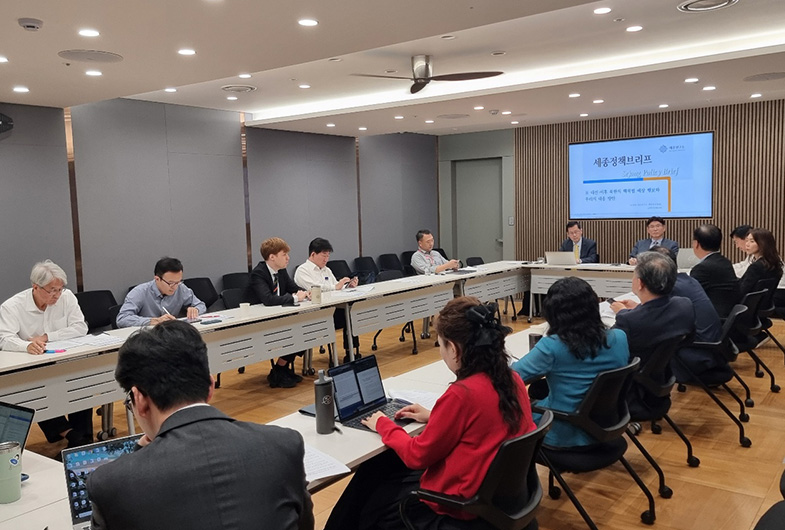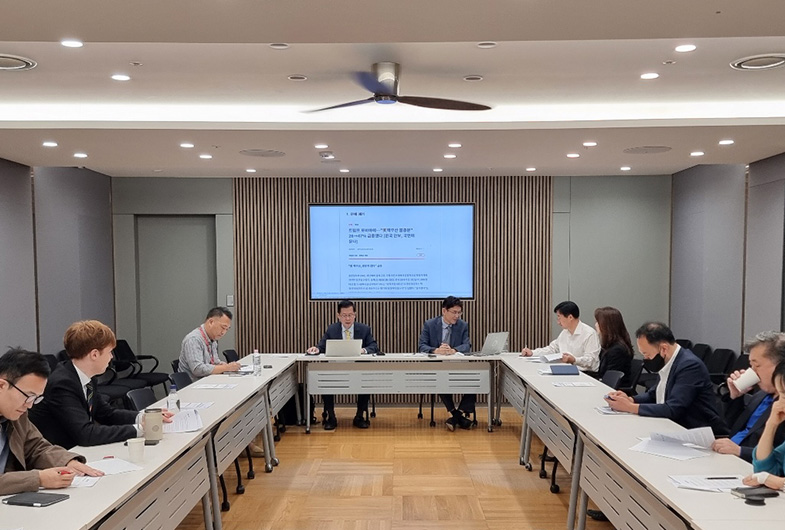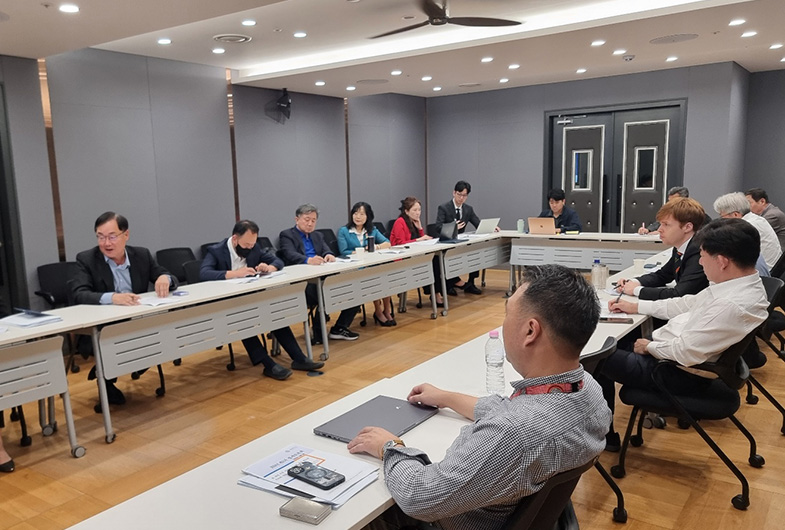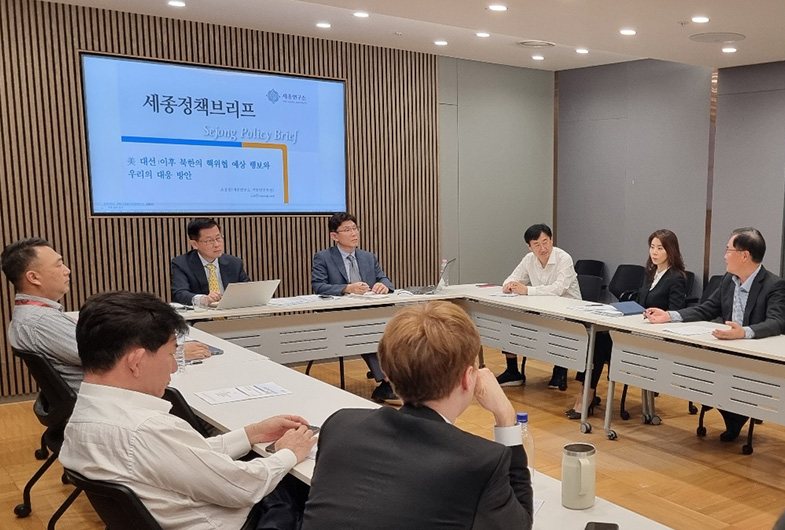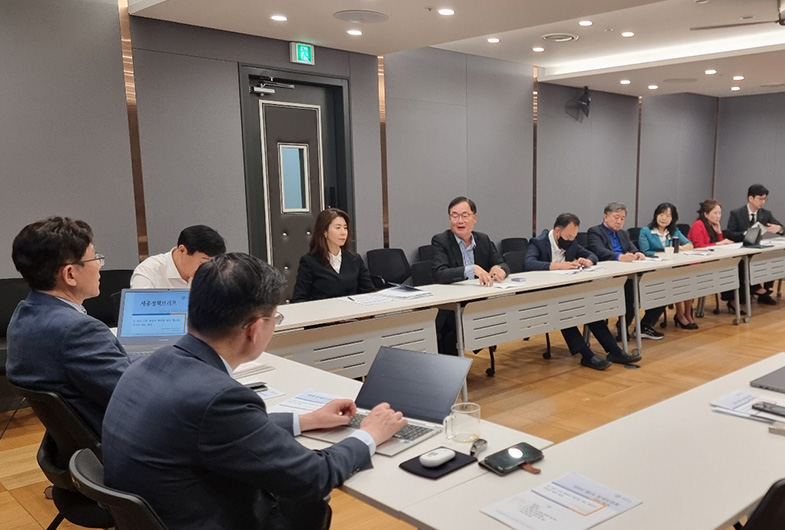On October 8th, Jang-Won Jo, Visiting Research Fellow, gave a presentation on "- North Korea's Nuclear Threat After the U.S. Election and Korea's Response Measures" at the 21th Colloquium.
The discussion was moderated by Seong Chang Cheong, Director of the Center for Korean Peninsula Strategy
North Korea conducted tunnel rehabilitation work at the Punggye-ri Nuclear Test Site from March to June 2022. As these trends focused attention on whether North Korea would conduct a seventh nuclear test, North Korea announced the "Nuclear Forces Policy Law" in September. It conducted the "Tactical Nuclear Attack Drill" from late September to early October, prompting experts to suggest North Korea's tactical nuclear weapons may have been deployed. If North Korea's claim of possessing tactical atomic weapons is accepted as it is, it could create a situation where public opinion in favor of recognizing North Korea as a nuclear power and the possibility of the U.S. negotiating with North Korea for disarmament talks could be conducted, so we must take countermeasures.
After the U.S. presidential election, North Korea is likely to adjust the pace and intensity of its provocations depending on whether Trump or Harris is elected, highlighting the issue of nuclear and ICBMs, threatening to conduct a seventh nuclear test, and possessing a large number of nuclear warheads to confirm the possibility of nuclear disarmament talks and contacts between the U.S. and North Korea, and, if the talks and contacts do not go as planned, a seventh nuclear test, launching an ICBM at a normal angle, unveiling a large number of nuclear warheads, and testing multiple warheads is likely to be conducted.
The international community needs to continue to make it clear that it will not accept North Korea's future claims of advanced nuclear capabilities by demanding verification of the facts of their nuclear capabilities, and when dealing with the North Korean nuclear issue, it is not the best strategy to assess North Korea's nuclear capabilities at their maximum based on their claims and prepare for their maximum threat.
North Korea's nuclear provocations should highlight the need to strengthen the U.S.-ROK alliance, an integrated extended deterrence, a strengthened NCG system, and enhanced U.S.-Japan military cooperation in the Asia-Pacific region to deepen the debate on the formation of an Asian version of NATO and the expansion of the role and mission of UN Command.
It is also necessary to take the initiative by responding offensively rather than defensively. Announcements of damage estimates, casualties, etc. that assume the use of nuclear weapons by North Korea should be avoided as they could encourage North Korea's nuclear provocations, and the leaders of the U.S., South Korea, and Japan should consistently state that the use of nuclear weapons by North Korea would lead to the end of their regime. In addition, the redeployment of submarine-mounted tactical nuclear weapons in waters near the Korean Peninsula, which could lead to South Korea's nuclear arsenal, could be utilized as an option to pressure North Korea.
In addition, it is necessary to actively explain to Washington the unfairness of the U.S.-North Korea disarmament negotiations. Governmental and private sectors should be actively engaged to discourage the U.S. from accepting the disarmament deal by explaining its goals, intentions, and aftermath, and emphasizing that North Korea is likely to use the dismantlement of its nuclear warheads as an excuse to lift sanctions, suspend U.S.-South Korea joint exercises, halt the deployment of strategic assets to the Korean Peninsula, sign a declaration of the end of war, dismantle the U.N. Command, and withdraw U.S. troops from South Korea.
